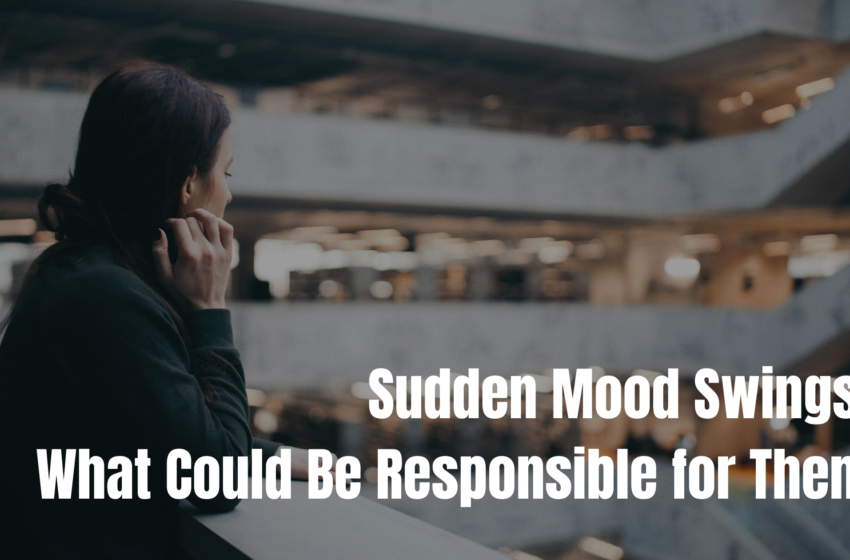Sudden Mood Swings? What Could Be Responsible for Them?

There’s hardly an individual who hasn’t experienced sudden mood swings. But if they occur rapidly and that too without a pragmatic cause, it could indicate a possible health problem.
Let’s talk about sudden mood swings, why do they occur, and how to manage them.
What Are Sudden Mood Swings?
A sudden mood swing is an abrupt change in a person’s mood or emotional state. Let’s say you’re happy about something. Maybe your favorite football team won the match. Suddenly, you receive bad news – your promotion got delayed – and you go from joyous to melancholic.
While these mood swings are occurring due to specific underlying causes, mood changes can sometimes happen without any explanatory reason. This can indicate an emotional or mental health disorder.
What Could Be Responsible for Them?
It’s normal to have sudden mood swings occasionally. Maybe you’ve experienced something terrible in life, and you’re sad about it. You decide to engage in a fun activity, such as playing a sport or watching a movie. You become happy for a while, but then suddenly, the memories of the bad incident return to your brain, making you sad again.
Mood swings are generally more common in women, especially younger women, when they’re in the first week of their monthly menstrual cycle. This condition is known as premenstrual syndrome (PMS) and is characterized by a collection of emotional, psychological, and physical disturbances. However, it’s a common condition, and more than 90% of women experience PMS symptoms.
In some cases, sudden, inexplicable mood swings can indicate mental health and mood disorders, such as:
- Bipolar disorder
- Major depressive disorder (MDD)
- Cyclothymic disorder
- Dysthymia
- Disruptive mood dysregulation disorder (DMDD)
- Schizophrenia
- Attention Deficit Hyperactivity Disorder (ADHD)
- Personality disorders
Hormonal conditions can also cause sudden mood swings. When individuals enter teenage, adulthood, or pregnancy, or when they grow old, hormonal changes occur in their bodies. These changes can lead to mood swings.
Substance abuse is another prominent reason for inexplicable mood changes. If you excessively consume drugs or alcohol, you’re likely to experience substance use disorders commonly associated with mood swings.
How to Manage Sudden Mood Swings?
Managing mood changes will depend entirely on what causes them. If you don’t have any health condition or substance use disorder, your problem is probably psychological. If you have a recent bad memory, mood swings are normal, and things will get better with time. If they don’t improve, consult a therapist.
However, if your mood swings are due to an underlying condition, consult a doctor. Sometimes, unexplained mood changes can indicate a mood or mental health disorder.
Wrapping Up
We all have moments in our lives that can put us in a state of shock, sadness, or anger. These can impact our overall mood and cause sudden mood swings. But sometimes, sudden mood swings can occur very rapidly and without any plausible reason. This can indicate mood and health disorders, which require medical attention.
Want to know more about mood swings and mental health? Join Kanexon today.



